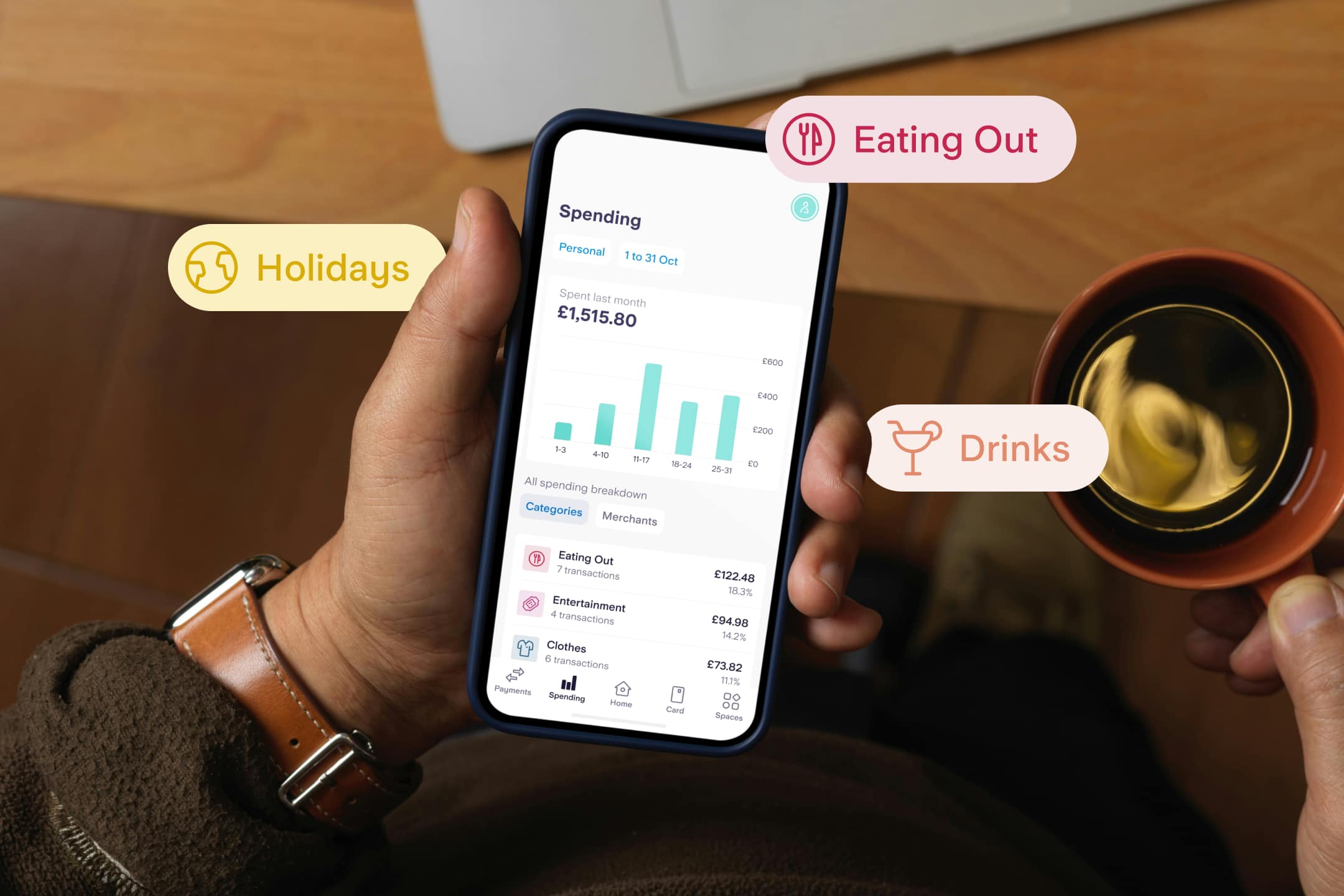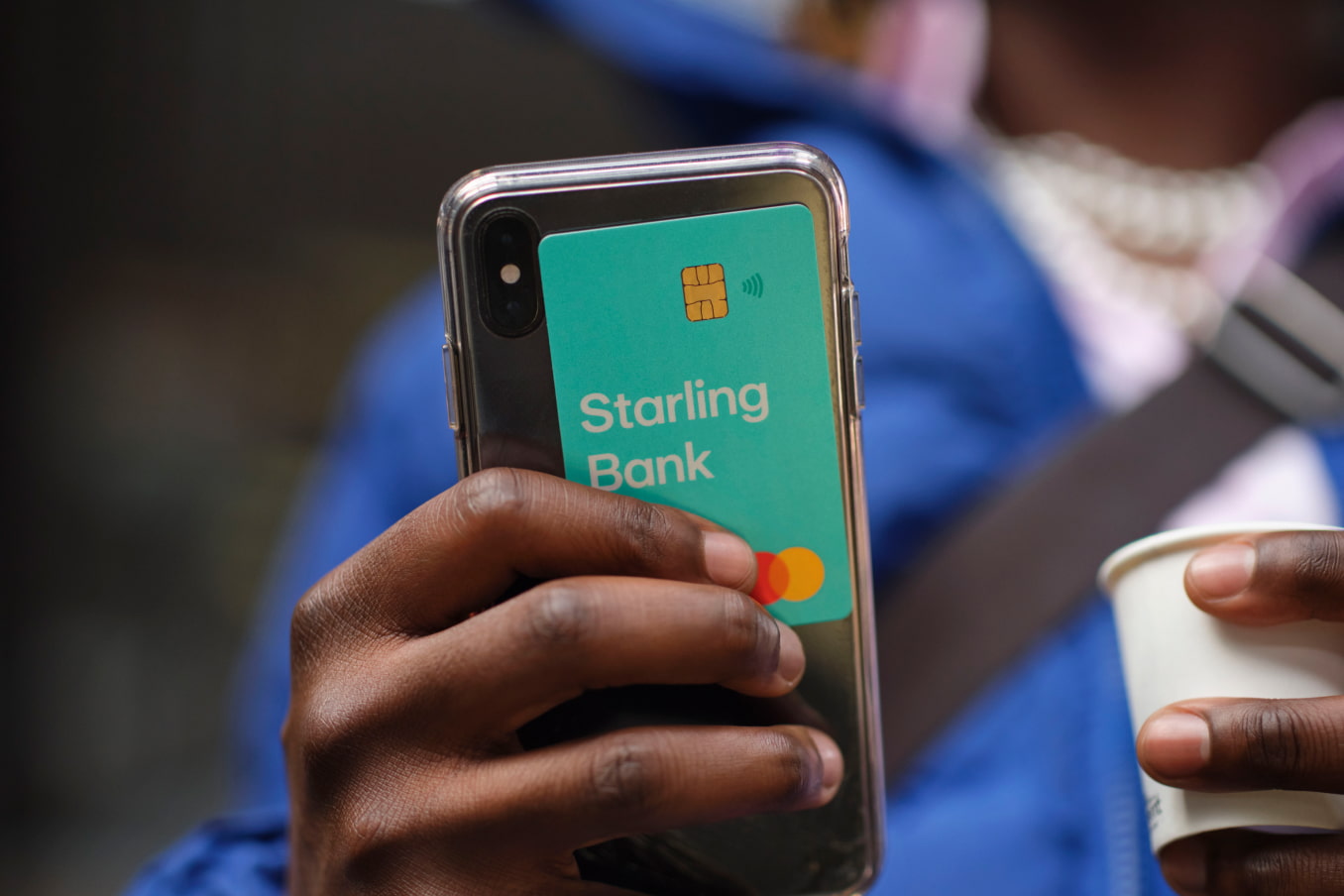
Saving
The Benefits of Dry January
By Starling Writing Team
Expert interviews

Spending money isn’t always a practical choice. Sometimes it’s emotional. Or psychological, underpinned by deep-rooted fears or needs, even influenced by the attachment style that shows up in your relationships.
If you’re spending beyond your means, have you asked yourself why? Yes, prices have soared in the last few years, but are other things at play? I spoke to a financial psychotherapist and a financial advisor to find out more.
Vicky Reynal
Financial psychotherapist
Author of ‘Money on your Mind: The Psychology Behind Your Financial Habits’

Timi Merriman-Johnson
Qualified financial advisor
Founder of financial educational platform Mr MoneyJar

Vicky: Why do we overspend? In my experience, there’s a complex web of factors. Often, there are emotional reasons. We might overspend to numb some feelings or to self-soothe, or to fill an inner void, a little bit like why the overeater might overeat.
Timi: Yes, I’ve been looking into attachment styles lately and that’s really helped me understand why I do what I do.
Vicky: Absolutely. For example, if you have an anxious attachment style, you might put other people’s needs ahead of your own out of a fear of being rejected, or not being liked. Social pressures, as Starling’s research has found, can also drive us to overspend but that on its own isn’t enough. It needs to hook into something within us – an insecurity, a fear, a desire. That’s what makes us engage with that pressure and tip over into overspending.
Timi: I definitely relate to that. I also think people overspend because they don’t know how much stuff costs, or how much they’d like to spend on different areas of their life.
Vicky: Yes, often because they’re scared of limiting themselves. But setting goals for your spending can actually make you feel so much more free. If you know you can afford to spend £150 a month on restaurants or evenings out – and you stick to that – you are more likely to really enjoy spending that money, rather than feeling guilty all the time because you have a vague sense of what you might be able to afford, but not the certainty.
Timi: Guilt is a huge one, isn’t it?
Vicky: It really is. How do you manage your own spending? What are your tips?
Timi: I think visibility is really important, which is why I encourage people to check in with their finances regularly. Monthly is the standard way to do that. But 30 days is quite a long cycle. I have no idea what I did in the middle of September. But I can remember what I did last Monday.
Vicky: Very true.
Timi: My other tip is to look ahead in those weekly cycles and make a plan for what you’d like to spend. My calendar tells me what I’m doing during the week, like going to a restaurant or going to see a film. And that gives me a framework for any more spending, so I know whether I need to change a plan or definitely say no if a friend asks me to come to the pub.
Over 30% of respondents said that they often don’t realise how much they’ve spent on socialising until the day after.

Timi: Spending time with loved ones feels really good. And when you’re in the moment you spend, just so that you can keep the feeling going.
Vicky: Exactly. There’s a term I use – ‘financial, emotional awareness’, which is about being conscious of your weaknesses. So if you know that you’re that person that always offers that next round of drinks to everyone, and that’s the bit of your behaviour that you end up regretting all the time, have a moment before you leave the house and say to yourself, “Right, I need to stop myself from doing that tonight, I’m going to bring out just this amount of money with me. Let’s see if I can do it this time”. That moment of mindful thinking before you go out will hopefully mean that when you’re in it, you can stop yourself and make a different choice.
41% of people who overspend when socialising usually regret going out.

Timi: Interesting. What do you think usually drives someone who falls into that habit?
Vicky: Sometimes it can come from feelings that are really embedded, rooted in our early years. These, I find, can have a really strong grip on us – behaviours driven by certain fears, such as a fear of not belonging, or being abandoned or being rejected.
Timi: Or a need to fit in?
Vicky: Exactly. The important thing to remember with something like this is that there are other ways to address that fear and need. What about tuning into the conversation a bit more, or saying something thoughtful to the other person?
Almost 30% of people aged 18-34 believe that spending more when socialising with colleagues will help their career growth.

Timi: Do you think the same goes for people who are overspending by saying yes to too many work events?
Vicky: Definitely. There are always things that are in your control that you can do to address your core fear or desire. Can you take more initiative or be a little bit more innovative? Can you compromise: do you have to go to all the events that work organises and stay until the end every time? Or is it enough to go, make a connection with people, but not stay until everybody else leaves?
Timi: This is something I asked myself recently and why I set a quota. For me, one work event a week is what feels reasonable.
Vicky: Perfect – you’ve set a boundary. I also think it’s good to think about trade-offs. If you value socialising with colleagues and there’s a cost to this, what are you going to give up or cut back on to make room for this spending?
Timi: Yes, this is basically what I do when I check in with my finances every Sunday.
Vicky: Any final tips on avoiding overspending?
Timi: Yes. Don’t spend 100% of your money. There’s nothing wrong with spending money but if you can, try to spend 90% of it or 80% of it. Have a pay day routine – put money aside after you receive your income. And then spend the rest.
The article above includes general information and should not be taken as financial advice. If you have questions about your specific circumstances, you should speak to an independent financial advisor.
(Research source: Starling Bank survey of 2,300 UK adults, 2024)
Keen to make a budget?
Get started with Starling’s free, online budgeting tool.
Try our budget planner